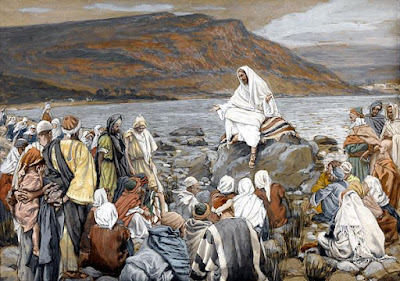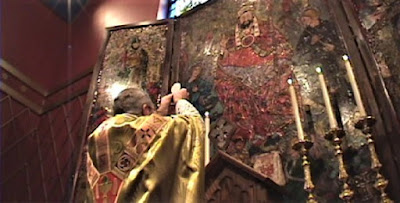When we are marked with ashes it is only a tiny remainder of what used to happen when the Christian Faith was first openly practiced in the Roman Empire. The imposition of ashes along with the admonition "Remember man, thou art but dust, and unto dust shalt thou return" reminds us of the truth that we have all sinned, and that as a consequence, we all stand under the sentence of death. We shall all return to the dust of the earth from which we were made.
Like so much in Catholic worship and life, whatever is signed and acted outwardly by the body is an external activity designed to effect changes in the inner soul. Behavior modification isn’t something recently discovered. The salutary effect of behavior changes in the body can, with the cooperation of the will, modify attitudes in the inner soul. The Church has always known this.
Of course, we need to understand that there is nothing about this which would denote a kind of "self-help" approach to salvation. Certainly, we cannot save ourselves by human "works." We are obliged, however, to respond to God. God offers, and we respond. And response involves more than smiles, pious thoughts and good wishes. Our response is found in our human activity. As the saying goes, “Actions speak louder than words.” Jesus said, "It’s not those who cry out Lord, Lord, who will be saved. It’s those who hear the word of God and keep it." Without our response, nothing changes within us.
God is at work. God is offering, calling, inviting and making Himself present to us in Christ. And Christ is working in us. He is interacting with us in His Mystical Body, the Church. He is working to bring about our salvation. He suffered and died for our sins. He suffered and died so that by the power of the Holy Spirit, our humanity can be raised up from spiritual death to victory.
So then, how can we not respond? How can we fail to act? How can we possibly ignore Him and turn away from all that God is doing for us in Christ?
Now is the time of our salvation. Now the day is at hand. Now is the opportunity for us to act. Now is the time for prayer, for fasting and for almsgiving, so that we might empty ourselves of those things that bring death, and make room for the Source of Life, Jesus Christ, to enter into us, to marry Himself to us, and to make us one with Him forever in Paradise. And that is the purpose of Lent: to prepare us for the Wedding Feast of the Lamb.














